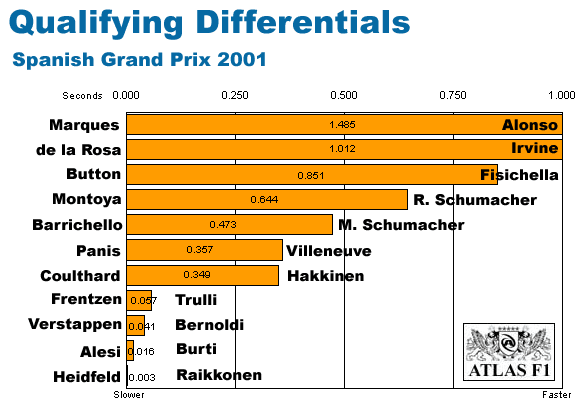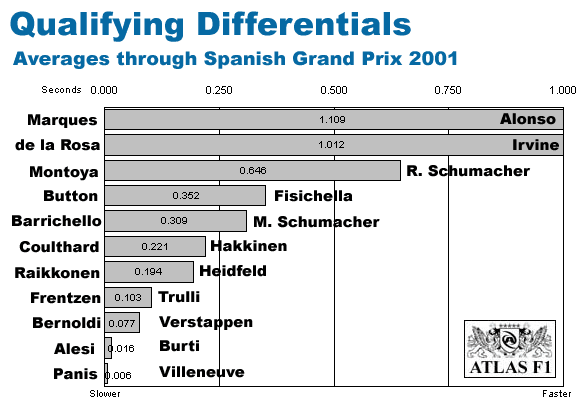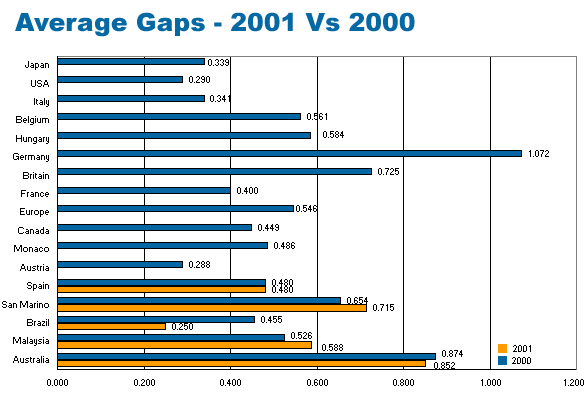| ATLAS F1 Volume 7, Issue 18 | |||
 |
Qualifying Differentials | ||
| by Marcel Borsboom, Netherlands | |
|
For the fourth year running, Atlas F1 is going to keep an eye on the battle between teammates throughout the season with a simple measurement: we compare the qualifying times of each driver against his teammate's result. After every Grand Prix, we will show how teammates have fared up against each other, and where they are overall since the beginning of the season. At the end of the season, the World Champion of Qualifying Differentials will be elected - the driver who was most beaten by his teammates, in seconds. Only those who participate in at least 15 of the 17 rounds are eligible for the coveted crown; and for those who made the efforts and participated in all 17 races, the best and worst result will be scrapped.
Spain Notables
|


| The average gap between teammates in Spain was exactly the same as last year's: 0.480s. This, compared to the previous Grand Prix in San Marino, where the average gap was 0.715s; 0.25s in Brazil; 0.588 in Malaysia; and 0.852 in Australia. |

| Marcel Borsboom | © 2007 autosport.com |
| Send comments to: borsboom@atlasf1.com | Terms & Conditions |